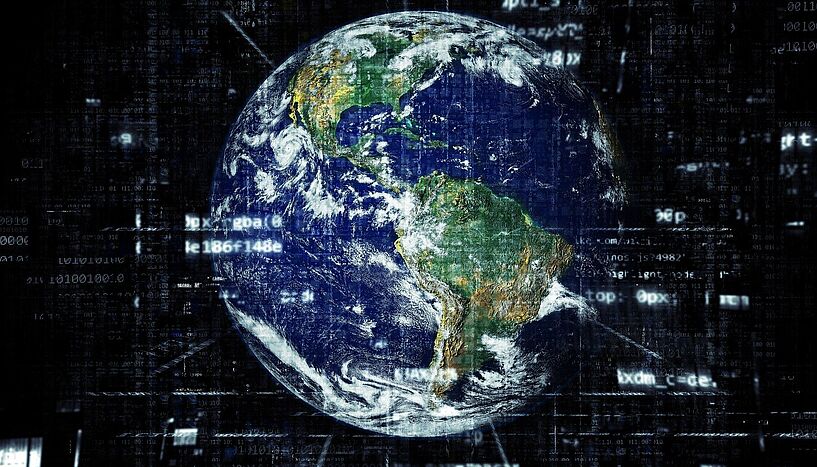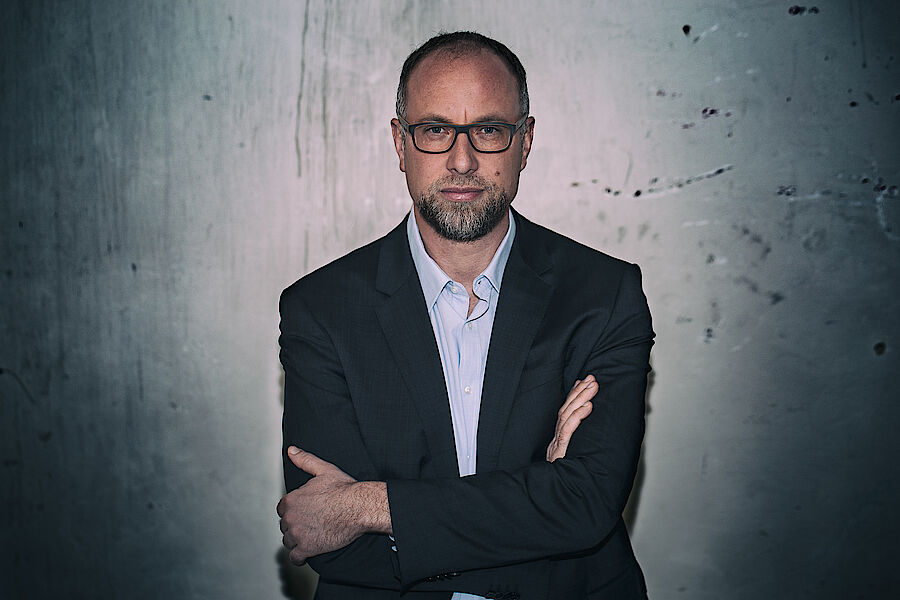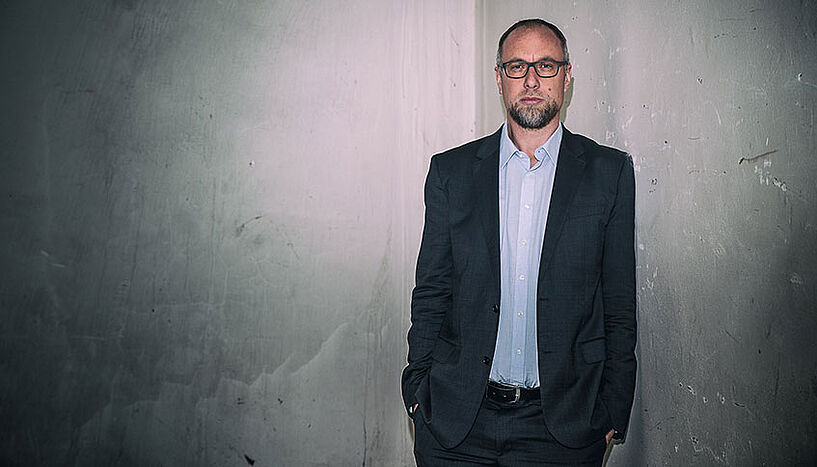Digitalization in times of COVID-19
| 08. April 2020
The crisis not only raises issues concerning digitalization, it also brings up fundamental questions about the nature of social relationships, says philosopher Mark Coeckelbergh. (© Pixabay/The Digital Artist)
What does the COVID-19 crisis teach us about digitalization? Mark Coeckelbergh, philosopher of technology and professor at the Department of Philosophy of the University of Vienna, reflects on digital technologies and society.
The COVID-19 crisis intervenes in the debate around digitalization in interesting ways, which can be summed up as a paradox.
The paradox
On the one hand, it reminds us about some hard, non-digital facts of life: in spite of all our digitalization fantasies, it becomes clear again that we have bodies, that these bodies are not virtual, and that these bodies are extremely vulnerable to tiny little things called viruses. Things get physical and biological. Forget about video games; this is real. Wash your hands.
On the other hand, the crisis shows that digitalization is very important, indeed, a matter of survival. Luckily we have all these digital tools now. They enable us to continue work and education. They maintain society and the economy. “Look, politicians”, digitalization enthusiasts may exclaim, “we have been much too slow with digitalization! We should have done this years ago. And look, employers! Of course it was possible to be more flexible and let people do work at home.” So what is it now? Is the crisis about promoting digitalization or not? What is the solution of the paradox?
We were digitalized and real at the same time
Both reactions assume that there is a hard choice to be made between digitalizing or not digitalizing. And that there is, on the one hand, a real world, and on the other hand a virtual, “digital” world, which are strictly separated. This assumption is wrong. We have been “digitalizing” already for quite a while, even if not everywhere as fast. And when we use a computer or a smartphone, we are not in another world and we don’t leave your body at home. Our lives are mediated by digital technologies. But as I argued in my book "Human Being @ Risk", we remain embodied, real, and, indeed, vulnerable. Very vulnerable.
However, this does not mean that there is nothing more to say or that there are no choices to be made. There is a lot to learn from this crisis: about digitalization and, especially, about our society.
Discussing digitalization is more important than ever
First, the crisis forces us to think about digitalization and new technology. More people become aware about how dependent they are on technology and realize that it’s important to reflect about this. This is a chance for technology ethics, for example ethics of AI (as discussed in my recent book "AI Ethics"). It is also a chance for policy makers: they better use the crisis as an opportunity to stimulate public and democratic discussion about digitalization and to develop a vision about digitalization in a post-crisis world.
A massive social experiment
Second, the crisis is interesting for humanities and social scientists, since it resembles a huge, large scale social expert that many digitalization researchers could previously only dream of: what happens when face-to-face, offline social contact is reduced and we only have online media? What, exactly, is it that we miss? The crisis raises philosophical and scientific questions about social interaction and the nature of sociality, and their relation to technology and digitalization. This is a chance not to be missed. For academia, but also for each of us: to reflect on digitalization and on the social being that we are and want to be.
Some are less digitalized and more vulnerable
Finally, COVID-19 reveals once again problems concerning justice and inequality. There are at least three gaps that become apparent. First, there is the still existing digital gap between young and old: some were already highly digitalized and can cope more easily with the crisis. Second, not all work and economic activities can be digitalized. Some people are unemployed now; the crisis hits them much harder. Not everything can be transferred to the home office. And not everyone has a home or the luxury of a home office, physically or in terms of other demands on them such as parental care.
Third, in education the crisis reveals a gap between children whose parents can give them home schooling versus others. Digitalization thus widens existing gaps. We may all be digitalized to some extent and we are all vulnerable. But some are less digitalized and more vulnerable than others.
The crisis thus not only raises interesting issues concerning digitalization and our relation to technology; it also brings up fundamental questions about the nature of social relationships and reveals some inconvenient truths about our society that need to be addressed.

Mark Coeckelbergh is Professor of Philosophy at the Department of Philosophy of the University of Vienna. His research focuses on the philosophy of technology and media, in particular on understanding and evaluating new developments in robotics, artificial intelligence and (other) information and communication technologies. ( © Martin Jordan)



